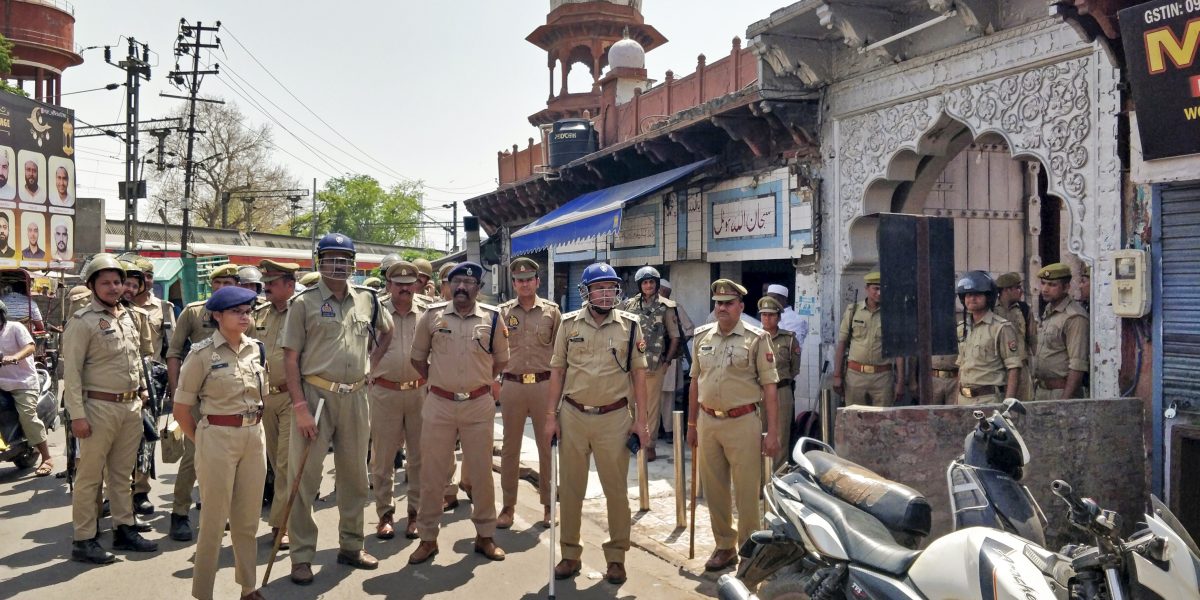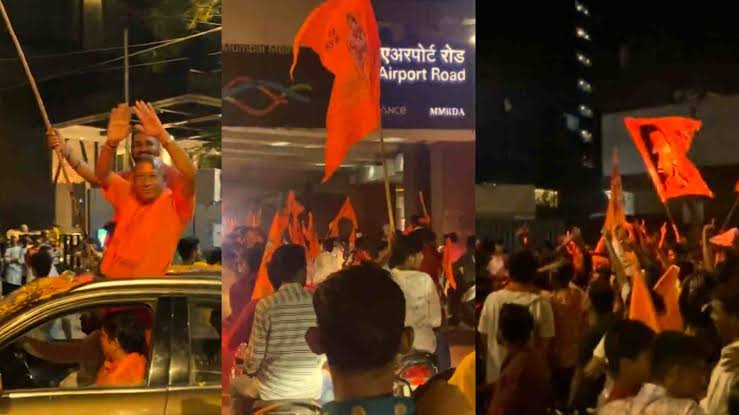
New Delhi: A professor at a private college in Aligarh was sent on compulsory leave after footage purportedly showing him offering ‘namaz’ in the college lawns was shared multiple times by workers of Bharatiya Janata Party and other Hindutva outfits who demanded action against him.
The incident was reported in Sri Varshney College, which sent law professor S.R. Khalid on a month’s compulsory leave on Tuesday, May 31. The college had earlier banned the hijab.
The college’s principal Anil Kumar Gupta told Indian Express that Khalid told him that he was ” in a rush and he read the namaz in a park.”
A spokesman of the institution told reporters that an inquiry has also been ordered into the matter after some youth leaders belonging to the Bhartiya Janata Yuwa Morcha (BJYM) charged the teacher of “indiscipline” and said he tried to disturb peace by offering namaz in public.
Student leader Deepak Sharma Azaad claimed that by offering namaz inside the college campus, the professor was trying to “vitiate the peaceful atmosphere.”
BJP youth wing district vice president Amit Goswami told The Quint that this was part of a “well-planned conspiracy.”
“Instead of teaching, the assistant professor is offering namaz in his religious attire on the college campus. Such conduct by a teacher is an attempt to create division among the students…This is not a stray incident but part of a well-planned conspiracy to defame the present BJP government in the state,” Goswami added.
No reports yet suggest that Khalid took part in activities that have been alleged by the rightwing groups, other than peacefully offering namaz at a corner of the lawns.
A complaint in this connection was also filed at Kuwarsi police station. Police told the news agency PTI that action in the matter will be taken after it receives a report from the college authorities. No FIR has been filed yet.
This article first appeared on thewire.in






